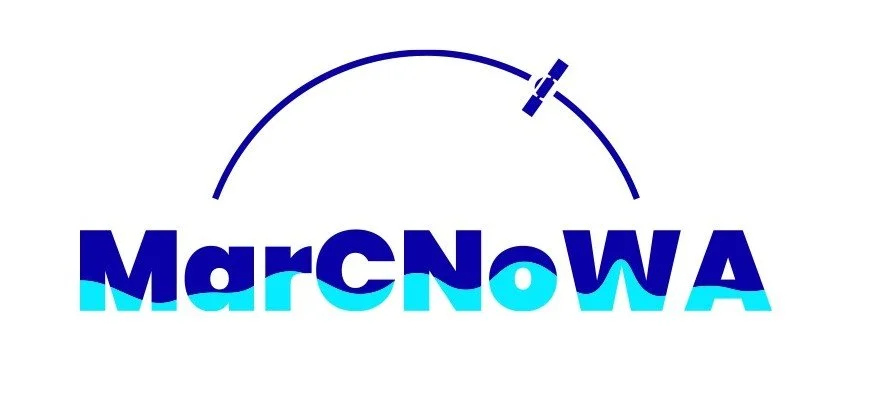Bridging the Gap in Marine Weather Forecasting: A Tailored Training Initiative for Togo
In a significant stride towards bolstering marine weather forecasting and maritime safety, the Marine and Coastal Areas Management in West and North Africa (MarCNoWA) consortium, backed by the Global Monitoring for Environment and Security (GMES) and Africa programme, successfully concluded a specialised training programme in Ghana. This initiative emerged from a direct request by the "Haut Conseil pour la Mer," of Togo after discussions in Abuja and Mombasa. It highlighted the urgent need to enhance capabilities in handling in-situ and satellite data for early warning systems and precise forecasts.
A practical session between a trainer (GMet) and the trainees (“La Préfecture Maritime” and “Agence Nationale de la Météorologie du Togo” - ANAMET)
Addressing a Critical Need
Prompted by the "Haut Conseil pour la Mer's" acquisition of marine weather stations and the formation of a multidisciplinary team, this customised training sought to upgrade the technical skills of Togo's marine weather workforce. The training, designed to meet the unique demands of the marine and fishing sectors, was a collaborative effort led by the University of Ghana and the Ghana Meteorological Agency (GMet).
A practical session between a trainer from GMet and a trainee from “La Préfecture Maritime” - Togo
Programme Insights
The two-week, blended training workshop, which included both online and in-person sessions, was exclusively tailored for 13 personnel from Togo's "La Préfecture Maritime" and the National Meteorology Agency (ANAMET). The curriculum extensively covered:
Data Management: Sessions focused on the critical evaluation and handling of in-situ and satellite data essential for marine weather analysis.
Forecasting and Early Warning: The training equipped participants with cutting-edge forecasting techniques and the development of reliable early warning systems.
Practical Application: Emphasis was placed on practical skills, enabling the creation of timely and accurate maritime weather information, benefiting fishermen and other sea users.
An online session, during the Opening Ceremony
Empowering Stakeholders
This programme represents a pivotal advancement in empowering Togo's marine weather stakeholders, equipping them with the necessary tools and knowledge to improve maritime safety and efficiency. The training also serves as a model for future collaboration and capacity building within the region, with participants receiving certificates of completion.
Acting Director General of GMet, Mr. Eric Asuman, awarding Mr. Sinandja Diyani, a meteorologist from the “ Préfecture Maritime” - Togo
Ongoing Commitment to Excellence
The success of this tailored initiative underscores the GMES and Africa Programme and the University of Ghana consortium's dedication to enhancing marine weather forecasting capabilities. It lays the groundwork for continuous development and cooperation, aiming to reduce risks associated with maritime operations and safeguard sea users.
This effort not only boosts the technical capacity of the involved teams but also promotes a culture of knowledge sharing and collaboration, contributing to the African Union Commission's broader goals and sustainable development as part of Agenda 2063.




